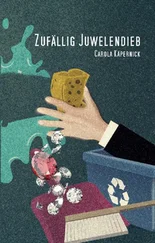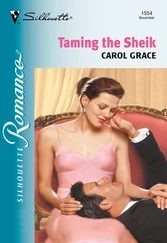“Nonsense,” said the old woman. “You’re eating for two.”
Lise placed one hand over her still-flat stomach. It was amazing how much she looked forward to having this child. No matter how uncertain the future.
“When I was up at the castle this morning, the cook sneaked me some of her chocolate gateaux, so today we feast.” Smiling, Lise held the basket out so her old nanny could see the delicate frosted cakes.
Keep smiling, she told herself. Though inside she was in turmoil, she couldn’t let it show. Not to Nanny, who’d suffer for her, not to Queen Celeste who would think she deserved it, and not to her sisters who would feel sorry for her. No one must know the pain she felt at being deserted and divorced by her husband, the shame of being disinherited, of coming back alone to be at the mercy of the current occupants of the palace.
Today. She would think only of today, not tomorrow, not six months from now. She would take it one day at a time. At least she had a roof over her head, leaky though it was. The palace repairman said he couldn’t fix it while it was raining, he’d get to it when the sun came out and when it was convenient. She told herself she was lucky to have a job of sorts and she had her dear old nanny. Things could be worse.
Things had been worse when she was married to Wilhelm. Yes, they’d lived splendidly in Rhineland, where he, as a member of the royal family, had money and power. But he was a cold, arrogant, ambitious man who’d been chosen for her by her father for political reasons. If she had one thing to be thankful for, it was that she was rid of the scoundrel. She’d endure any amount of shame if she never had to see him again.
After handing Nanny a tray with her tea and cake, Lise sat down at the polished pine table in the kitchen and gratefully inhaled the steam from the fragrant brew.
“What news from the palace?” Gertrude asked. “Did you see the queen by chance?”
“No, I hear she’s keeping to her bed, preparing for the birth of her son.”
“Son? It’s going to be a son, then?” the old woman asked, setting her cup down with a clatter.
“So she says. But no one really knows. Not even the queen because she refuses to have a test to determine the baby’s sex. It seems talk of a boy is just wishful thinking. Because if it isn’t a son, she’ll lose everything—her power, her status…well, you know as well as I do, as well as the whole kingdom does, how desperate she is to bear a son.” What everyone knew was that according to the ancient law, the monarchy of St. Michel passes only through the male line.
Nanny nodded thoughtfully. “I guess everyone in the country is feeling desperate for an heir. Because if there is no heir, our beloved country will be absorbed by Rhineland.”
Lise shivered involuntarily at the thought. She and her husband had lived royally in Rhineland during the brief months of her marriage, but she had no happy memories of him or of his country.
“Now, child, don’t fret,” her nanny said when her sharp eyes noted Lise’s distress. “Isn’t it true that the dowager queen has sent the head of the security force, Luc Dumont, to find the missing heir? Perhaps he will find him.”
“Yes, maybe.”
“Ah well, something will save us, it always has,” Gertrude said. “In the meantime, if you’ll hand me my knitting, I must get busy on the sweater for your baby.”
Lise took away her tray and handed Nanny her knitting basket full of pale yellow yarn. After getting her settled next to the ornate cast-iron stove that gave off a comforting glow, Lise put on her smock over a turtleneck sweater and leggings and went to the adjacent greenhouse. It was there she did her best work as restorer of priceless artifacts of the Kingdom of St. Michel. Today she was painting an old cracked frame she’d restored.
Besides the peace and quiet, Lise appreciated the natural light that poured through the slanted windows of the greenhouse even on a rainy day. There were only a few leggy green plants left by a long-ago gardener, leaving the shelves free for her collection of glass mosaics, jars of acrylic water-based paint and a selection of bristle brushes and tools. The smell of the damp earth and paint pigment melded together in a heady blend that soothed and inspired her.
If there was any place she could forget her troubles, it was here. Mixing and blending the paint, she hummed to herself. The work was challenging, but her studies in London with a master craftsman had prepared her well.
An hour later she heard a car pull up in front of the cottage. She was still immersed in her work and hated interruptions when it was going as well as it was today.
“Nanny will take care of it,” she murmured to herself. She hoped it would be the delivery of her belongings from Rhineland. She’d left so suddenly, she’d taken only a small suitcase. Whatever it was, whoever it was, Gertrude knew enough not to bother her when she was at work.
However someone didn’t know enough. There was a knock on the door of the greenhouse. Lise pushed an errant strand of hair back from her face.
“Yes?”
“Lise?” It was a deep voice. Vaguely familiar. “It’s Charles. Charles Rodin.”
“Charles?” Charles, her husband’s twin brother? What on earth was he doing here. Anything, anyone connected with her ex-husband was upsetting and an intrusion in her new life. She’d left Wilhelm and wanted no reminders of the biggest mistake of her life.
“May I come in?” he asked.
As annoyed as she was, she couldn’t help but notice the difference. Wilhelm would have barged in. His brother waited to be invited.
She opened the door. And stared at the man who stood there. He looked disturbingly like her ex-husband and yet the expression on his face was nothing like Wilhelm’s arrogance. She barely remembered Charles from her wedding at which he had been the best man; she hadn’t seen him since that fateful day, but she knew this was a man who was self-confident but not arrogant. Maybe it was the way his rain-dampened hair fell across his forehead or the way he’d stuffed his hands into the pockets of his cashmere coat, still, the resemblance bothered her and brought back unpleasant memories. She wanted nothing to do with Wilhelm or any member of his family. She was doing her best to forget all of them. And now this….
“May I come in?” he asked again.
What was wrong with her? She’d been raised with better manners than to let a guest stand in the doorway. But he was so big, so broad-shouldered, so startlingly like his brother, she’d thought he was in.
“Of course,” she said briskly.
He stepped into the small greenhouse with the earthen floor and suddenly the glassed-in room was crowded to overflowing. She had no space, no room to breathe or think. There was a fluttery feeling in the pit of her stomach. She tried to think of something to say, but her mind was blank. All she could do was to stand there and wait for him to say something.
After a long silence during which he looked her up and down with a shade too much intimacy and she continued to stare at him, she finally found her voice.
“What is it, Charles? What do you want?”
He frowned at her lack of civility. What did he expect, that she’d welcome him with open arms, after what his brother had done to her?
“I came when I heard the news, about the divorce…to see if…to see what I could do.”
“Nothing. You can do nothing. You can’t stop your brother from divorcing me, you can’t make my parents’ marriage valid, you can’t find an heir for our country, and you can’t bring my father back to life. So go back to your country and tell your brother I don’t need him or any of his family.”
Charles looked surprised at her angry words. “I haven’t been in my country for months nor have I seen much of my family. Perhaps you aren’t aware, but my brother and I have never been close. And now we are hardly on speaking terms,” he said stiffly. “We lead separate lives, both professionally and personally. I’m in charge of the wine business of Rhineland and Wilhelm is managing the family’s investments abroad. I’ve been in the U.S. for the past six months. When I ran into Wilhelm last week in Los Angeles he told me about the divorce. I couldn’t believe it. It’s only been, what…?”
Читать дальше












